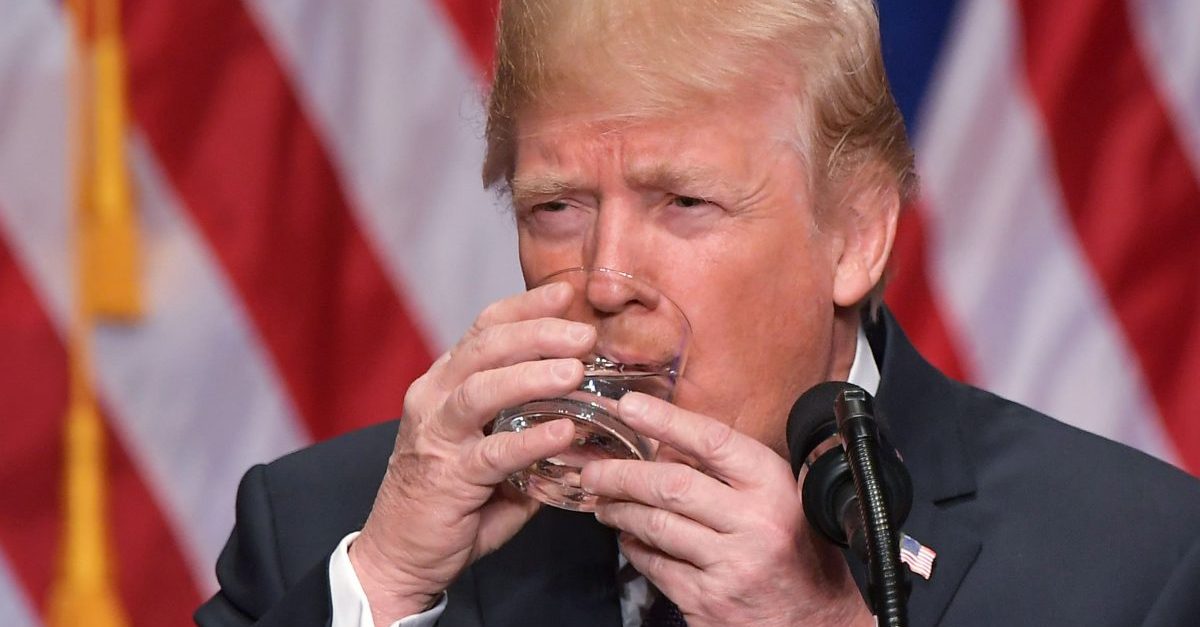
A federal judge on Friday ruled the Department of Justice (DOJ) must turn over former special counsel Robert Mueller‘s grand jury materials to congressional investigators. In no uncertain terms, the ruling hinges a huge portion of its decision-making on the White House’s own response to the House’s informal impeachment inquiry.
U.S. District Judge Beryl A. Howell‘s 75-page order is a significant setback for the White House and an important victory for House Democrats who are looking into whether President Donald Trump obstructed justice during Mueller’s Russiagate investigation, and more. The order will no doubt be appealed.
“To insure most effectively against being misled, [the House Judiciary Committee (HJC)] must have access to all essential pieces of testimony by witnesses, including testimony given under oath to the grand jury,” the decision stated. “Additionally, for purposes of assessing and following up on the Mueller Report’s conclusions, the full Report is needed: the grand jury material may offer unique insights, insights not contained in the rest of the Report, congressional testimony, or FBI-302 reports.”
DOJ attorneys had attempted to argue that congressional investigators have “not yet exhausted [their] available discovery tools.” Judge Howell could barely restrain her ridicule.
“These arguments smack of farce,” she wrote. “The reality is that DOJ and the White House have been openly stonewalling the House’s efforts to get information by subpoena and by agreement, and the White House has flatly stated that the Administration will not cooperate with congressional requests for information.”
Chief among the sources of Howell’s ire was a blistering, October 8 broadside written by White House Counsel Pat Cipollone.
“Given that your inquiry lacks any legitimate constitutional foundation, any pretense of fairness, or even the most elementary due process protections, the Executive Branch cannot be expected to participate in it,” Cipollone wrote in response to congressional inquiries and subpoenas emanating from the three impeachment-focused committees in the U.S. House of Representatives.
“The letter’s announced refusal to cooperate” with subpoenas didn’t much convince the district judge. She noted:
The White House’s stated policy of non-cooperation with the impeachment inquiry weighs heavily in favor of disclosure. Congress’s need to access grand jury material relevant to potential impeachable conduct by a President is heightened when the Executive Branch willfully obstructs channels for accessing other relevant evidence.
Legal experts were quick to comment on the pride before the fall here.
“This was always why the Cipollone letter was so short-sighted,” noted University of Texas Law Professor Steve Vladeck. “For courts that historically prefer to sit back and let the political branches reach their own accommodations, a categorical rejection from the White House ratchets up the case for (expeditious) judicial resolution.”
Former federal prosecutor Renato Mariotti said the letter wasn’t even a serious attempt to dissuade eventual judicial arbiters.
“The Cipollone letter, on its face, placed Trump above the law and said that the Constitution did not apply to him,” Marioitti remarked. “It was never going to convince any court. It was best understood as a stall tactic. Time is starting to run out.”
Others said the arguments in that letter were destined to fail.
“When Cipollone wrote the memo, I called it the ‘crayon memo’ because of its bad lawyering,” commented former acting U.S. Solicitor General Neal Katyal. “It wasn’t just a comically unpersuasive document, it was flatly at odds with our constitutional order. And it was obstruction-ey to boot. These judicial decisions are inevitable. ”
“Cipollone’s letter was essentially the same as giving the House the finger,” said former federal prosecutor Elizabeth de la Vega. “Judges are not fans of that kind of ‘negotiation.'”
Judge Howell also knocked Attorney General William Barr‘s underlings for their hazy familiarity with precedent in the D.C. Court.
“DOJ relies on the definition [of “judicial proceeding”] first articulated by Judge Learned Hand in 1958,” she writes in a footnote on page 22 of the decision. “DOJ’s reliance on this definition is puzzling since courts—including the D.C. Circuit—have consistently recognized that Judge Hand gave ‘judicial proceeding’ ‘a broad interpretation.'”
And that’s still more or less just the beginning of Howell’s barbs against the Trump administrations attempts at legal argumentation.
A lengthy footnote on pages 42 and 43 tears into those efforts [emphasis in original]:
When queried about reconciling DOJ’s current position with its historical support of providing grand jury materials to Congress for use in impeachment inquiries, DOJ responded that its position has “evolved.” No matter how glibly presented, however, an “evolved” legal position may be estopped. … Here, DOJ has changed its longstanding position regarding whether impeachment trials are “judicial proceedings”… DOJ successfully argued–just last year–that the D.C. Circuit has “treated [case law] as standing for the proposition that an impeachment proceeding may qualify as a ‘judicial proceeding’ for purposes of [the federal rules]” and the D.C. Circuit agreed. DOJ’s position has had a speedy evolution indeed.
[image via MANDEL NGAN/AFP/Getty Images]